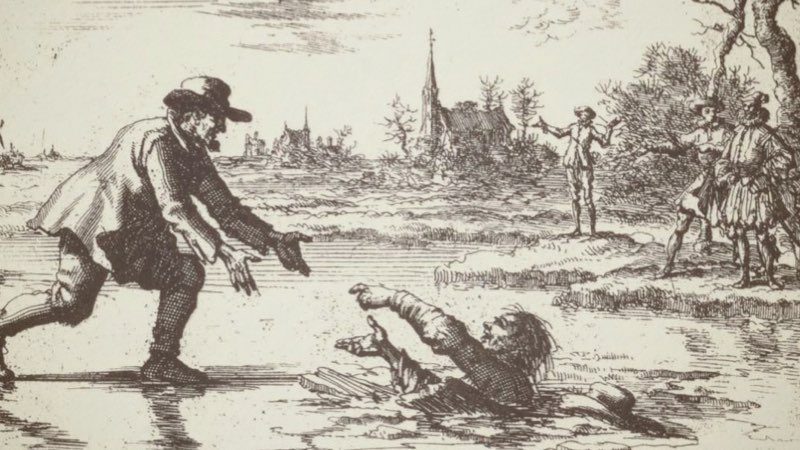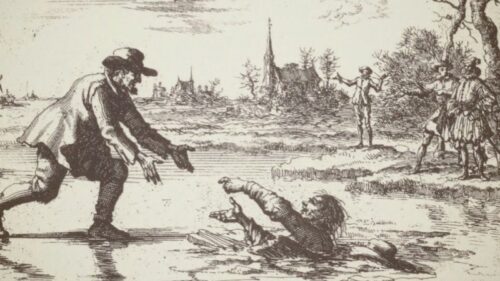-
74. Vetius Pagathus
Vetius, Surnamed Pagathus, Put To Death On The River Rhone In France. About The Year 172 [J. Gysius fixes the beginning of this persecution of the Christians, at Lyons and Vienne, on the river Rhone, in the year 179; but other authentic Writers commence it with the year 172.] When the persecution of the Christians on the River Rhone, at Lyons and Vienne, in France, did not cease, but increased the longer the more, so that those who confessed the name of Christ, were forbidden, first their houses, then their bath-rooms, and afterwards all public places, so that they could stay neither in the house, nor in the city, nor without, which was a cause of much suffering to them, it happened, that, some of…
-
73. Germanicus
Germanicus, An Eminently Pious Man, Devoured By The Beasts, At Smyrna In Asia Minor, For The Testimony Of Jesus Christ, A.D. 170 In P. J. Twisck's Chronicle is found the following account for the year A. D. 170: Germanicus, with other dear friends of God, had to suffer severe persecution and torture for the name of Christ, and was finally cast before the wild beasts, and thus willingly ended his life." 2d book, van den undergang, page 46, col. 1, from Euseb., lib. 4. Concerning the cause of his conversion, suffering and death, other authors write thus: "When the bystanders (while the Christians were being miserably put to death) beheld with their eyes, that the flesh of the martyrs of Christ, by many scourgings and…
-
72. Carpus, Papylus, Agathonica and Many Other Women
Carpus, Papylus, Agathonica And Many Other Women, Put To Death At Pergamos, In Asia Minor, For The Confession Of The True Faith, About The Year 168 It is recorded that about the same time that the aforementioned Christians were martyred, several other pious persons suffered death for the name of Jesus Christ, and the confession of the Son of God; among whom are mentioned by name, three very eminent persons, namely, Carpus, Papylus, and a woman called Agathonica, together with many other women; who were all crowned with the crown of the holy martyrs at Pergamos, in Asia Minor, for the saving confession of the true faith. Euseb., 4th book, cap. 15, fol. 70, col. 2. A. MelL, 1st book, fol. 42, col. 1, 2.
-
71. Twelve Pious Christians
Twelve Pious Christians, Who Had Come From Philadelphia To Smyrna, Put To Death On The Same Day, With Polycarp, The Aforementioned Martyr, A. D. 168 In the letter which the Holy Ghost directed John to write to the angel of the church at Smyrna, which we mentioned above, it is indicated, that not only the teacher, who is called an angel, namely Polycarp, but also some of the church, would have to suffer for the name of Jesus Christ. We read: "Behold, the devil shall cast some of you into prison, that ye may be tried" (Rev. 2:10). This was also fulfilled in truth. For it is stated, that not only Polycarp, the leader of the church at Smyrna, but with him also twelve members…
-
70. Polycarp
Polycarp, A Disciple Of The Apostle John, And Bishop Of The Church At Smyrna, Put To Death With Fire And Sword, For His Faith In The Son Of God, A. D. 168 We read in the Revelation of John, that the Lord commanded His servant John, that he should write a few things to the angel (that is, the bishop or teacher) of the church at Smyrna, for the admonition of the teacher as well as for the service of the church, saying: "Unto the angel of the church in Smyrna write: These tilings saith the first and the last, which was dead, and is alive; I know thy works, and tribulation, and poverty...Fear none of those things which thou shalt suffer: behold, the devil…
-
69. Justinus
Justinus, First Scourged, And Then Beheaded, For The Testimony Of Jesus Christ, A. D. 168 Justinus was called a son of Priscus Bacchus, and was born of Greek parents, at Neapolis in Palestine. In its proper place we have spoken of the views of Justinus concerning baptism on faith, and have shown that he was sound and correct in them. Now, however, it is proper for us to speak of his spiritual birth, of his heavenly fatherland, and how conclusively he showed that he was a child of God, and a citizen of the heavenly city, filled with all good things; which appeared not only in the beginning and progress of his faith, but especially in the end, when he testified to its power with…


